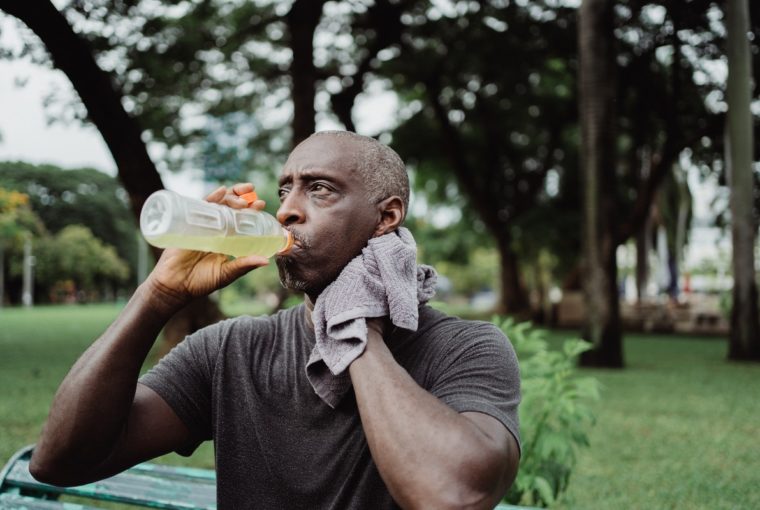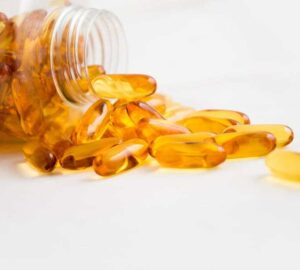We don’t like to sweat, but our bodies will overheat and make us feel sick without this vital function. Sweating acts as the cooling system and is responsible for losing body weight and keeping us healthy. There are many other benefits to having sweat glands throughout our body, some of which will have a dedicated section in this article.
Average Vs. Athlete Sweat Rates
An average person sweats between 27.4-47.3 oz (or 0.8 to 1.4) letters per hour during exercise. That the equivalent of 2-3 pints of beer. Since we sweat so much during a workout, it’s important to hydrate yourself consistently, especially if you’re an athlete. Athletes can sweat as much as 125 oz or 3.7 liters per hour or more, but higher sweat rates have been recorded.
If you sweat a lot while sweating or you are soaking with sweat after a mild workout, you may have a condition called hyperhidrosis (excess sweating). If that sounds like you, there are deodorants for excessive sweating available on the market to help manage this condition.
What Sweat Can Tell You About Your Body
Now that you know how much an average person sweats, we can look at what may be happening in your body if you’re perspiring more than normal.
You’re Stressed
While you usually sweat a lot because you’re working out or moving, your pits will start to smell worse than usual when you’re stressed out. When you typically sweat, the eccrine gland secretes water and salt, but the apocrine gland takes over in the armpit and causes us to smell when we’re stressed. The compound of fat, protein, and bacteria can make for a smelly combination, which was useful for our ancestors who used that to repel predators.
You’re Pregnant
Anytime our body produces an excessive amount of hormones, our sweat glands will start to go into overdrive. During pregnancy (and menopause), many women experience hot flashes, which can leave women feeling sweatier than usual. If you find yourself reaching for the thermostat, you may need to prioritize healthy eating and sleep to get back to some semblance of normal.
You’re Approaching Heat Stroke
Heatstroke works similarly to hypothermia, where you suddenly stop feeling cold. When a heat stroke starts approaching, your body ceases to sweat, and you’ll get dizzy, but before that happens you likely noticed an excess of moisture on your forehead and armpits. Before heat sickness turns to stroke, you should rehydrate immediately and sit in the shade. Long-lasting anhidrosis (heat exhaustion) can cause nerve damage or death, so take this seriously.
You’re Not Eating the Right Foods
We already established that B.O. is caused by stress, but bad-smelling, oily or fatty foods can also cause it. Although this is common for most people, it could start to affect your quality of life if you produce an odor regardless of what you eat. If that’s the case, you could have trimethylaminuria, which makes it difficult for your body to break down trimethylamine. Consult your doctor if you often smell like rotting eggs, fish, or garbage.
You’re Drinking Too Little Water (Even When You’re Drinking A Lot)
It’s very difficult to over hydrate, that isn’t the problem here. The issue is that you can still drink the recommended amount of water per day and develop too much salt in your sweat. You’ll know this is happening if your sweat feels sticky, dries white, or if it produces a stinging pain when it reaches your eyes or an open cut.
Salty sweaters need to drink more water than the average person to keep their sodium low. You may also need to cut back on salty foods in your diet, but your body can usually filter salt in large amounts. Always keep water with you throughout the day to build this habit.




